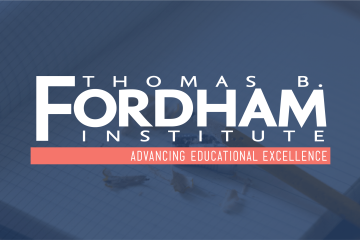For many years, my son Ted has been principal of the elementary grades of a K–12 public charter school in Massachusetts. It uses the Core Knowledge Sequence (a grade-by-grade outline of essential content) as a primary tool for developing its curriculum. His school ranks in the top-performing group of schools in the nation’s top-performing state. Needless to say, the school has long followed the rightly admired Massachusetts standards. Indeed, the Massachusetts standards are so good that some of the most vocal opponents of CCSS are claiming that the Common Core State Standards will represent a watering down. But Ted’s school justifies a very different inference. His Core Knowledge–based curriculum is consistent with both the Massachusetts standards and the CCSS. How so? It’s because both sets of standards set rigorous goals but don’t specify content for each grade level. In the course of actual implementation, therefore, a school can simultaneously fulfill both the Massachusetts standards and the CCSS, as Ted’s school so effectively does.
This fall, Ted’s daughter, Cleo, will be teaching in a school in the Bronx, assigned to teach the American Revolution to seventh-grade public school students. Though hugely competent, she panicked and called me: “O my gosh. Granddad, are there any teaching guides for this?” Her school could offer no real support. I sent her one of the thick, grade-by-grade teacher handbooks produced by the Core Knowledge Foundation. These handbooks explain each topic and provide instructional suggestions. In addition, they also lay out the knowledge above and beyond the lesson topics that would be useful for the teacher to have by way of background. The best sources for further relevant materials wrap up each section. Cleo was greatly relieved.
But what about all the other Cleos out there who are being thrown into these sink-or-swim situations in our public schools, sent into classrooms in which it’s impossible to know what their students already know and in which teachers are given scant guidance about what they should be teaching or—worse—are asked to teach literacy classes based on the trivial and fragmented fictions found in the standard literacy textbooks?
Teachers in the typical American classroom cannot rely on their students having previously acquired any specific item of knowledge. But effective classroom teaching depends on key prior knowledge being shared by all the members of the class. Without such shared knowledge, truly effective whole-class teaching cannot occur—no matter how potentially effective the teacher is. In today’s schools, teachers are compelled to overuse all sorts of individualizing strategies—at huge opportunity cost to the progress of the class as a whole. Individualized instruction is always important. But it is far more effective when students share prior academic knowledge, which alone enables the teacher to engage in varied instructional approaches.
That’s why I have become so impatient with the teacher bashing that has overtaken the education-reform movement. The favored structural reforms haven’t worked very well. The new emphasis on “teacher quality” implies that the reforms haven’t worked because the teachers (rather than the reform principles themselves) are ineffective. A more reasonable interpretation is that reforms haven’t worked because, on average, they have done little to develop “rich content knowledge within and across grades.”
The single most effective way to enhance teacher effectiveness is to create a more coherent multi-year curriculum, so that teachers at each level will know what students have already been taught. The Common Core State Standards offer a framework for any state to create the curricular coherence that could lead to massive gains in student learning. If we created a more coherent school environment in which a teacher’s work in one year reliably builds on what has been taught in prior years, teacher effectiveness would improve on a large scale. A conscientious and intelligent realization of the new Common Core Standards would introduce a key element that has been missing in our schools for too many tragic decades.
A version of this post orginally appeared on the Huffington Post.




